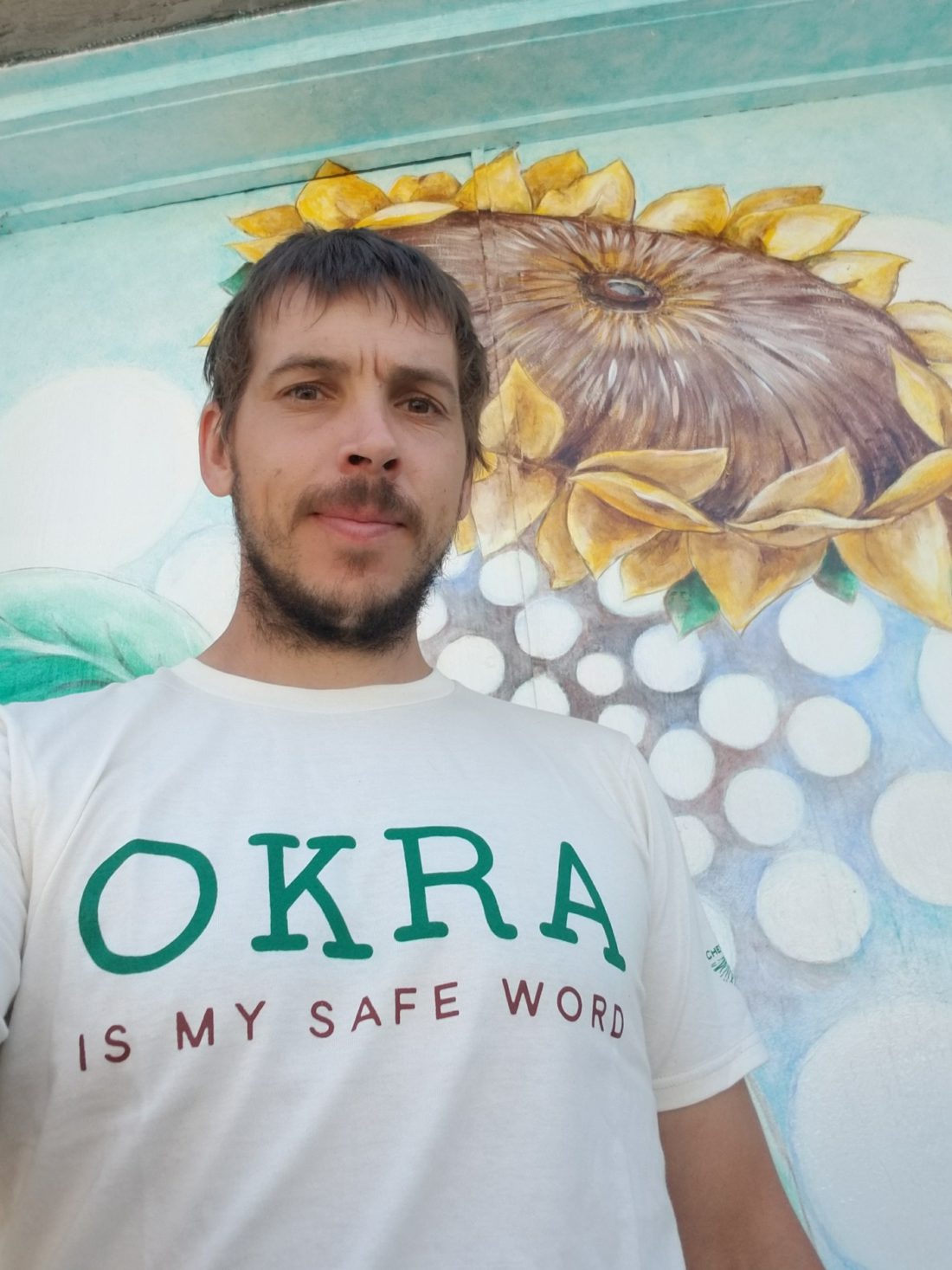Chris Smith recalls the moment he tried okra for the first time after moving to the U.S. from England six years ago. The possibilities, says the marketing and communications manager at Sow True Seed, seemed limitless.
“You can eat the leaves, the flowers — the pods are delicious. There’s so many culinary cultures to draw from when you’re looking for recipes. You can dry the seeds and grind them for flour and press them for oil,” Smith says, beaming. “It’s just this wondrous crop, and yet everyone seems to think it’s terrible and yucky. I felt like somebody needed to stand up for it.”
Last summer, Smith took his love for okra to new heights through his work with the Utopian Seed Project, a organization that aims to create diverse and integrated food systems. He catalogued more than 75 varieties of the vegetable, which he hopes will promote resilience against pests, disease and climate change while providing greater food security.
“To walk into my okra field was just to be astounded by these totally different okras. There were different plant heights, leaf shapes, pod colors, stem colors,” Smith says. “From a botanical standpoint, there was definite genetic diversity between all of the different crops, and that was very exciting.”
Editor’s note: As part of our monthlong celebration of this region’s commitment to sustainable ways of living and working in community, Xpress is highlighting some of those who are making a difference by taking action on a variety of creative and inspiring initiatives.



